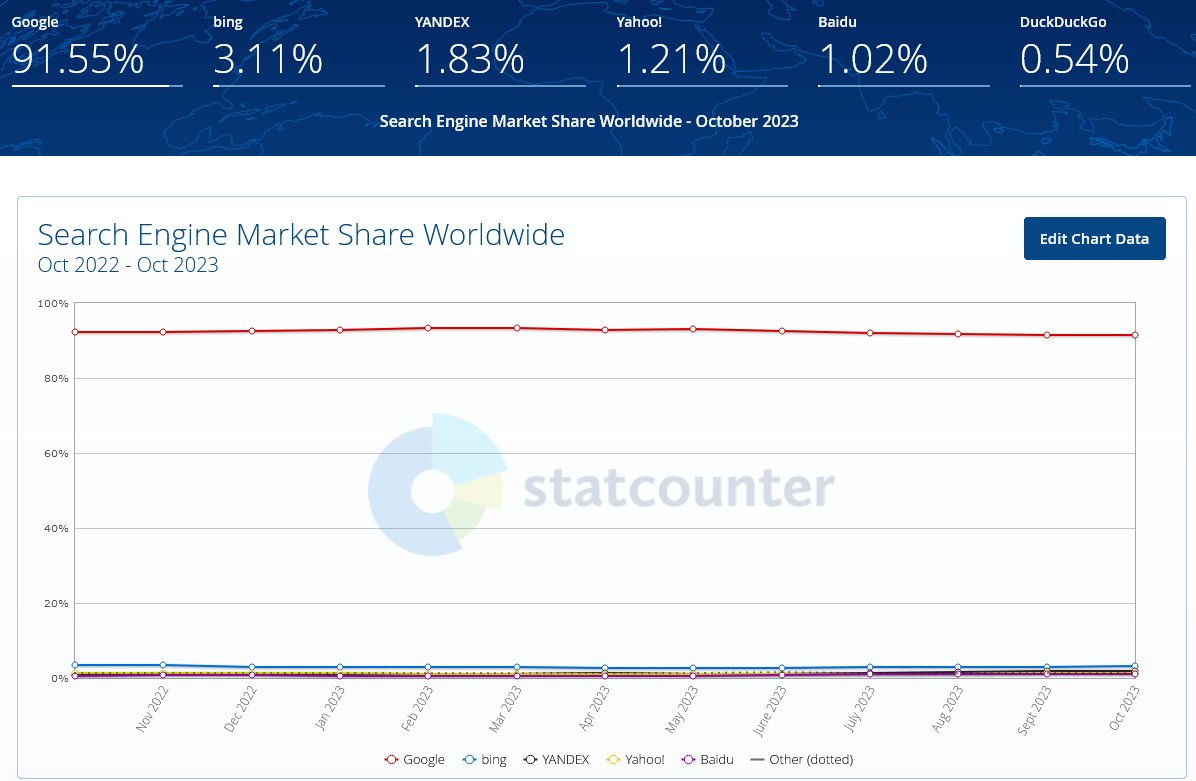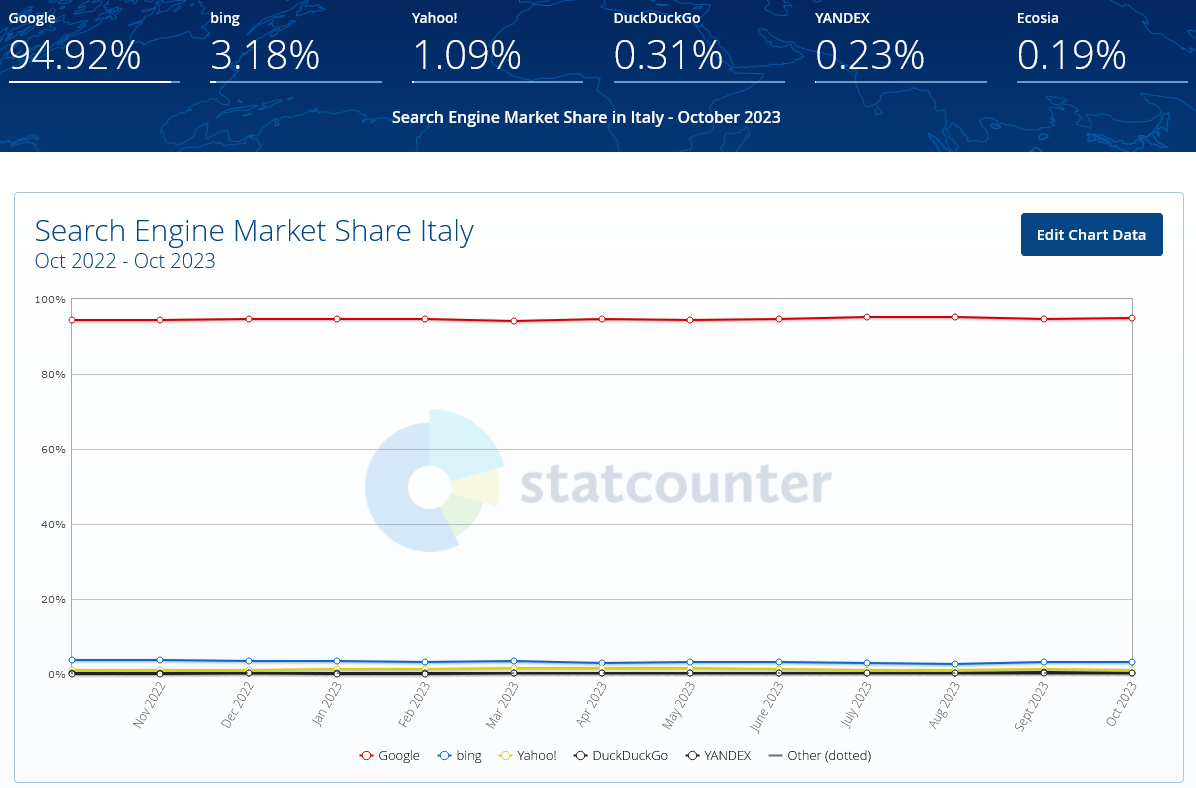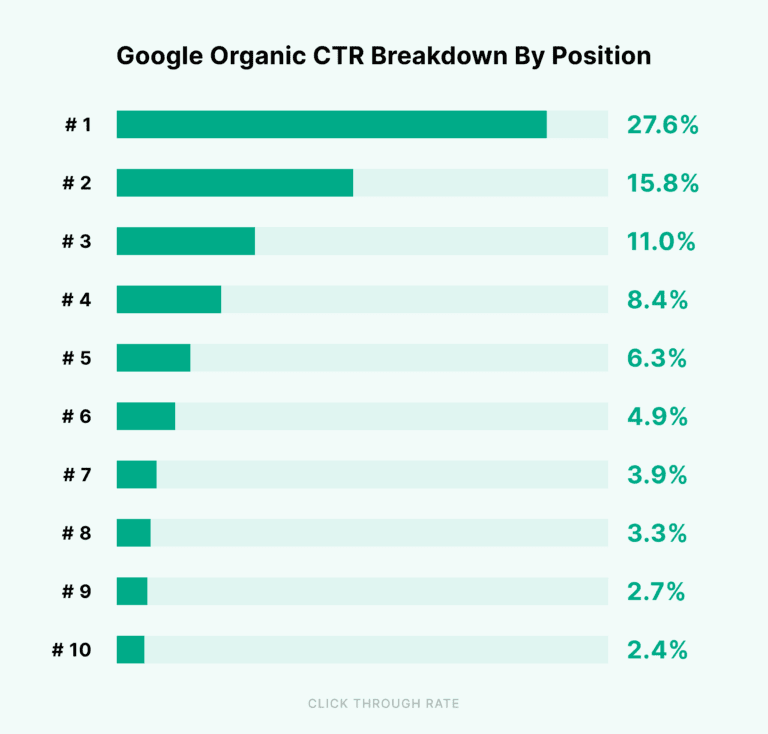Why do SEO? The importance of this activity for every site and brand
It is the activity that we do on a regular basis, that we invest time (and often money) on every day and that, as “everyone says,” can help our site get better results: but why is SEO needed and why does it make sense to do SEO? Let’s take a very basic overview of the concrete value on how much it matters for a site to rank on Google and the crucial role that search engine optimization techniques play in achieving this goal, including through a series of industry data and statistics.
Why do SEO: a strategic investment for success (not just online)
Let’s start with a basic assumption: when a website is online, it needs visitors, navigators who land on its pages to take advantage of the services it offers, be they informative content, products to buy or any other type of resource. There are many ways to reach these navigators, but the one that is probably the most convenient and effective in the long run (as well as the most traveled) inevitably goes through search engines, which are often the starting point of the user journey, i.e., the journey that chronicles a person’s interaction with online services.
In today’s scenario, an online presence has become a necessity for companies of all sizes, but the enormous competitiveness of digital demands an additional step: to emerge, to be truly visible. This is where SEO comes in, an increasingly holistic and multidisciplinary activity whose ultimate goal is to make the site-and more generally the brand-more attractive and appealing to users who find us on a search engine, thanks to a mix of quality content, attractive design and a smooth and intuitive user experience.
Unless one is familiar with the site in question (through previous experience, publicity on social or other means, recommendations from friends, and so on), the search engine is indeed the key ally for not getting lost on the Web and getting the answers to one’s needs. We speak in the plural because there are at least a dozen search engines on the online market, but we know that Google is our main reference.
According to the latest statcounter statistics, in particular, globally Google holds 91.5 percent of aggregate market share (all platforms). In other words, more than 9 out of 10 people use Google to do their online searches, while its competitors share the residual share of searches: for example, Bing stands at about 3 percent, while Yahoo!, Baidu, and Yandex hover around one percentage point.
In Italy, the situation is similar or perhaps even more crushed, with Google at nearly 95 percent, Bing reaching 3.2 percent, and Yahoo! at just 1 percent.
What, then, is SEO?
In short, it is on this basis that SEO fits, which we can define as the art and science of optimizing the content and technical configurations of websites so that Google can better crawl, index, understand and evaluate the pages themselves for ranking purposes. This constant and ongoing process, which includes a variety of techniques and strategies, aims to improve a website’s visibility in Google and related results.
Driving this activity are “intuitive” considerations: the more people who see and click on content in Google’s search results, the more organic traffic we will receive, thus bringing earned visitors to the site for free, through non-paying searches.
When well executed, then, SEO succeeds in bringing people to the pages who are already targeted and at the right point in the funnel, to increase opportunities for conversion or leads – so-called qualified traffic, composed of people who are genuinely interested in what we offer. In addition to increasing website visibility and traffic, SEO helps give the brand an authoritative voice in its industry, on which it builds customer trust and loyalty.
Why is SEO important?
We have already given some hints of the reasons why SEO is one of the most powerful digital marketing strategies for improving sales, building credibility, increasing brand awareness, and gaining an edge over the competition. A solid SEO foundation not only attracts new customers, but also allows us to deepen our company’s-our brand’s-relationship with those customers through the trust we establish with them.
Going more concrete, when we search for something online we tend to give credit to sites that appear in the top positions of search results, which we perceive these sites to be more reliable and relevant. SEO helps us place our site high in search results, thereby increasing our visibility and credibility.
Unlike paid advertising and SEA strategies, SEO may not yield immediate results (and SEO timelines include waiting at least six months before complaining!), but its benefits last over time and do not end when campaigns go out. It is therefore an investment aimed at the medium to long term, which can serve to consolidate our brand’s online presence and increase revenue by converting users who have found our content in Google SERPs for queries related to our products or services into customers – usually at a lower cost than it takes for paid search ads.
A value that can however vary
This does not mean that SEO always has the same importance for all brands and sites or for all needs: beyond the actual effectiveness of strategies (which depends on a countless set of factors), there are also situations in which other digital channels may make more sense.
For example, if we are launching a new product, SEO may not work fast enough to have a significant effect, while paid advertising or PR campaigns may be a better solution. Similarly, if we want to give relevance to events, conferences, or time-limited courses, email marketing might be better suited because of the “expiring” nature of the product or service, just as many B2B service companies can get faster results by tapping customers via LinkedIn or individual sales.
In the background, then, there is to remember that the digital landscape is constantly evolving, consumer search behavior is never static, and likewise, Google, too, changes often, between core updates and other updates that now seem to be increasingly frequent. This means that it is not enough to perform optimizations today, because SEO work is constant and ongoing over time, to make sure you are always in line with what people are looking for (and want) and the search engine’s algorithms.
In general, however, SEO-related practices are beneficial to any business and can actually support efforts to gain organic visibility and expand the audience of potential customers.
What Google ranking means and how much positions weigh
There is another “asterisk” that should not be underestimated: it is not enough to be on Google – that is, to have pages crawled by Googlebot and included in the search engine’s Index – to get organic traffic, because what is needed is to actually receive clicks, to win the user’s attention and let them know that we can provide the right answer to their need.
And this all depends on the positions and ranking of our pages.
In SEO-speak, ranking refers to the position of a site’s content within the SERP, or search engine results page; classically, Google’s system involves the appearance of 10 organic results (blue links), to which are now added a wide range of additional features, such as paid ADS ad links, a series of rich results, featured snippets and other features generated by the user’s query-a direction even more exacerbated by the launch of the Search Generative Experience, powered by Artificial Intelligence.
Just like any ranking, for Google’s, each position has a specific and different weight: the criteria for ranking are established by the search algorithm through the very famous 200 ranking factors, while click analysis allows to quantify is the strategic importance of appearing among the top results.
The value of first position on Google and the relationship between ranking and user clicks
Broadly speaking, even the most recent analytical studies of user behavior on Google confirm that a page’s position in the SERP can have a significant impact on its click-through rate (CTR), and even more specifically that more than half of all clicks are concentrated on the top 3 results shown in SERP regardless of search type.
The mythical first position alone has an average CTR of 27.6 percent (slightly down from past years): being able to achieve this coveted goal, i.e., representing the best response according to Google when people search for a particular keyword, in the form of the first blue link to the exclusion of promotional results and other boxes that may appear on the page, therefore means having the opportunity to bring almost one in three users in total to our site. Still, the top three search results get 54.4 percent of all clicks, and the first organic result is ten times more likely to get a click than a page in tenth place. Considering that the organic CTR for positions 8 to 10 is virtually the same, moving a few positions down the first page may not generate more organic traffic.
This means, therefore, that the goal of “ranking on the first page” may not be enough for an effective SEO strategy, and our work should instead focus on earning top3 to really have a chance of getting clicks. Another interesting fact, only 0.63% of Google users click on results on the second page, and obviously the weight of the positions and the average click-through rates of users gradually decline until we get to position 9 and 10, which are both around 2.5%.
This suggests that most users don’t look at the bottom of search engine results pages, and also confirms the validity of one of the best-known SEO wisecracks: the best place to bury a corpse is the second page of Google (but already all results that are below the eighth position might be safe places!).
However, there is also positive news: gaining a position in search results can increase CTR by 2.8% on average, but the increase depends on the starting ranking: that is, moving from position No. 3 to position No. 2 usually results in a significant increase in CTR, as does moving from position No. 9 to No. 8, while moving from position No. 10 to position No. 9 does not result in a statistically significant difference.
Why SEO is useful and why it is important for a company to rank on Google
These concepts are quite trivial and repeated, but they serve to understand what SEO is and how important and decisive it can be for a site’s economic results. In fact, the ultimate goal of search engine optimization campaigns is to increase a site’s organic traffic, i.e., the number of people who click on the organic (non-paid) links that appear on Google Search pages, and thus the overall visibility of the project.
Also speaking on this topic was Martin Splitt, who in the course of his videos on SEO Mythbusting answered a direct question from Juan Herrera on “why it is important for a company to rank in Google’s top results.” Short answer: to get known and attract visitors, customers, users by outperforming competitors.
Users’ goals and Google results
To add details, the California company’s Search Advocate asked his guest a rhetorical question, “You’re a web developer and you make things on the Internet: do you want people to use them?” And therefore, to be sure that people “use these resources, they have to know that they exist”; often users are not looking for specific products, but for something that can be useful for a purpose, goal of theirs. That is, “I have a need and may not know who can fulfill it,” but by turning to Google I can count on a system that selects all possible answers on the topic and offers the most relevant results for that purpose, from which I can then choose in turn.
To use another simple and easy-to-understand example, if a user searches for a topic relevant to the products or services we offer, being present in high positions in SERPs could lead him to our site and allow him to complete a transaction; otherwise, we have lost a potential customer and one of our competitors may have just acquired him instead of us.
A simple explanation for an equally simple topic, from the practical application of which could derive the actual survival of a site and its success online: SEO is constantly evolving and especially in the beginning it can seem daunting because of the amount of time and energy required to succeed, but the end result is worth it. It is a low-cost channel that helps us strengthen the brand overall through the production of engaging content and is an integral part of a comprehensive marketing strategy that aims to make our site more visible-or at least, not invisible!
Data and statistics on SEO
As promised, let us complete this excursus on the reasons why we should do SEO – or at least consider this opportunity – with a series of statistics, numbers and data-driven information that can give us more awareness.
- In September 2023, the total digital audience in Italy reached nearly 44 million users, or 75 percent of the population aged 2 and older.
- About 42 million people, or 71.3% of online users, have browsed content and apps in the Search subcategory at least once, meaning they have used search engines.
- 68% of online experiences begin with a search engine.
- 53.3% of all website traffic comes from organic search.
- 92.96% of overall traffic comes from Google Search, Google Images and Google Maps.
- 90.63% of pages do not receive organic search traffic from Google.
- Only 5.7% of pages rank in the top 10 search results within one year of publication.
- Google has more than 90% of the global search engine market share, while Bing has less than 3%. Yahoo!, Yandex and Baidu all hover around 1%. Therefore, talking about SEO essentially means working for visibility on Google.
- About 15% of all Google searches are queries that the site sees for the first time.
- Only 33% of websites in 2022 exceeded the Core Web Vitals thresholds.
- The No. 1 result in Google’s organic search results has an average CTR of 27.6%.
- The top 3 Google search results get 54.4% of all clicks.
- The No. 1 organic result is 10 times more likely to receive a click than a page in 10th place.
- The first organic search result receives on average 19 times more clicks than the first paid search result.
- The first organic result collects the same clicks as all pages from fourth to tenth position combined.
- On average, moving up 1 position in search results increases CTR by 2.8%.
- Only 0.63% of Google users click on anything from the second page.
- Most users do not look at the bottom of search engine results pages.







